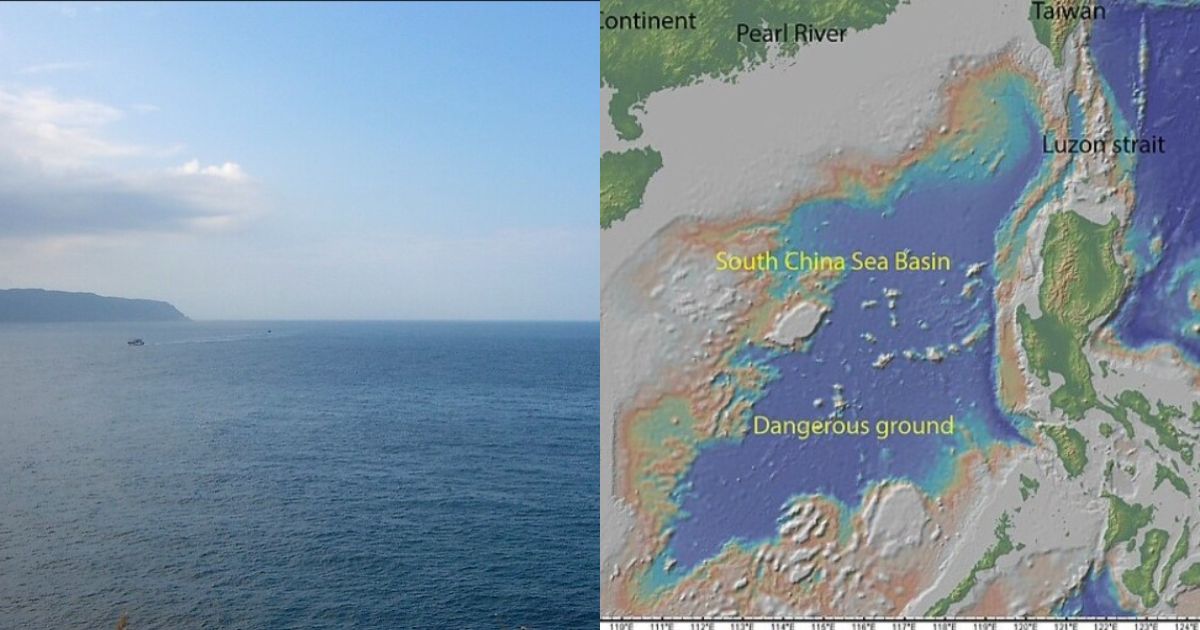
South China Sea: A Geopolitical Conundrum
As China enforces new coercive rules under which they can detain foreigners for trespassing in the South China Sea, it becomes imperative to understand the geopolitical significance of the disputed territory.
The South China Sea, an expanse of water rich in resources and vital for global trade, has become a focal point of geopolitical tension and strategic maneuvering in recent years. Stretching from the Strait of Malacca in the southwest to the Strait of Taiwan in the northeast, this region encompasses numerous islands, reefs, and shoals, many of which are claimed by multiple nations. The disputes over sovereignty, coupled with competing maritime claims and military posturing, have turned the South China Sea into a geopolitical hotspot with far-reaching implications for regional stability and international relations.
Historical Context
The historical context of the South China Sea disputes is complex and multifaceted. China asserts its historical claims based on ancient maritime maps and historical records dating back to the Ming Dynasty, which indicate Chinese exploration and activities in these waters centuries ago. These claims encompass the infamous "nine-dash line," which delineates China's perceived territorial waters far beyond its coastline, encroaching upon the exclusive economic zones (EEZs) of neighboring countries such as Vietnam, the Philippines, Malaysia, Brunei, and Taiwan.
However, these claims are vigorously contested by other littoral states and the international community. The United Nations Convention on the Law of the Sea (UNCLOS), to which China is a signatory, provides a legal framework for determining maritime rights and resolving disputes. According to UNCLOS, coastal states are entitled to a 200-nautical-mile EEZ from their shores, which grants them exclusive rights to exploit natural resources. China's expansive claims, which overlap with those of other states, have led to persistent tensions and diplomatic confrontations in the region.
Strategic Significance
Beyond historical and legal arguments, the South China Sea holds immense strategic significance due to its economic and military value. It is one of the busiest maritime trade routes globally, with approximately $5 trillion worth of trade passing through its waters annually. The sea lanes facilitate the transportation of oil and natural gas from the Middle East to East Asia, making it a critical artery for global energy supplies. Any disruption to the freedom of navigation in these waters could have profound implications for international trade and economic stability.
Moreover, the South China Sea is increasingly viewed through the lens of geopolitical competition, particularly between the United States and China. The U.S., a longstanding Pacific power, emphasizes the importance of upholding freedom of navigation and respect for international law in the region. In contrast, China's assertive actions, including the construction of artificial islands and military installations in disputed areas, are seen as attempts to bolster its strategic position and expand its influence over maritime territories.
Key Players and Their Stances
The South China Sea disputes involve multiple stakeholders with varying interests and positions. China, as the most powerful claimant, has pursued a policy of incremental expansion and assertiveness to consolidate its maritime claims. This approach includes the construction of military installations on artificial islands in disputed waters, which has drawn condemnation from neighboring countries and heightened tensions with the United States.
Vietnam, the Philippines, Malaysia, and Brunei also assert territorial claims in the South China Sea, primarily based on proximity and historical usage of islands and reefs within their EEZs. These countries have sought to bolster their maritime capabilities and enhance cooperation with external powers such as the U.S., Japan, and Australia to counterbalance China's growing influence in the region.
Taiwan, although not recognized as a sovereign state by Beijing, maintains similar claims in the South China Sea, complicating the geopolitical landscape further. Taiwan's strategic location and military capabilities add another layer of complexity to the disputes, as any escalation involving Taiwan could potentially trigger broader regional instability.
Diplomatic Efforts and Challenges
Diplomatic efforts to resolve the South China Sea disputes have been ongoing for decades but have yielded limited success. The Association of Southeast Asian Nations (ASEAN) plays a central role in facilitating dialogue and promoting confidence-building measures among claimant states. However, ASEAN's consensus-based decision-making process, which requires unanimity among its member states, has hindered the adoption of a unified approach towards China's assertive behavior.
Efforts to negotiate a Code of Conduct (CoC) in the South China Sea between ASEAN and China have been slow-moving and fraught with challenges. While both sides have expressed commitment to enhancing maritime cooperation and preventing incidents at sea, the implementation of a binding and effective CoC remains elusive. China's insistence on bilateral negotiations with individual claimant states and its preference for a non-legally binding CoC have further complicated efforts to achieve a lasting resolution to the disputes.
Future Prospects and Implications
The future of the South China Sea remains uncertain, with significant implications for regional stability and global security. As China continues to assert its maritime claims and expand its military presence in the region, tensions are likely to persist, raising the risk of unintended escalation and conflict. The United States, for its part, remains committed to upholding freedom of navigation and maintaining a robust military presence in the Asia-Pacific region to counterbalance China's growing influence.
The resolution of the South China Sea disputes will require sustained diplomatic engagement, adherence to international law, and a commitment to peaceful conflict resolution. Efforts to strengthen multilateral institutions and enhance maritime cooperation among claimant states will be crucial in reducing tensions and promoting stability in one of the world's most strategically important waterways.
The South China Sea disputes epitomize the complexities of modern geopolitics, where historical grievances, economic interests, and strategic rivalries converge. The region's significance transcends its geographic boundaries, shaping the future of international relations and maritime security in the Asia-Pacific and beyond. As stakeholders navigate these turbulent waters, the quest for a peaceful and rules-based resolution to the disputes remains paramount to ensuring stability and prosperity for all countries involved.
Popular Categories
Read More Articles
Travel and Tourism
Lucknow or Zaike: A City Remembered Through Taste by Mohammed Syed Zaid February 11, 2026Business
What's Up With WhatsApp? by Prateek Shukla February 9, 2026Entertainment
Reviving the Sounds of Awadh: Folk Singer Sarita Tiwari to Provide Free Training to Rural Women and Girls by Awadh 360° Desk February 7, 2026India
रिसर्च एंड डेवलपमेंट योजना’ के तहत सेंटर ऑफ एक्सीलेंस गठन हेतु विशेषज्ञ समितियां गठित by Awadh 360° Desk February 6, 2026



